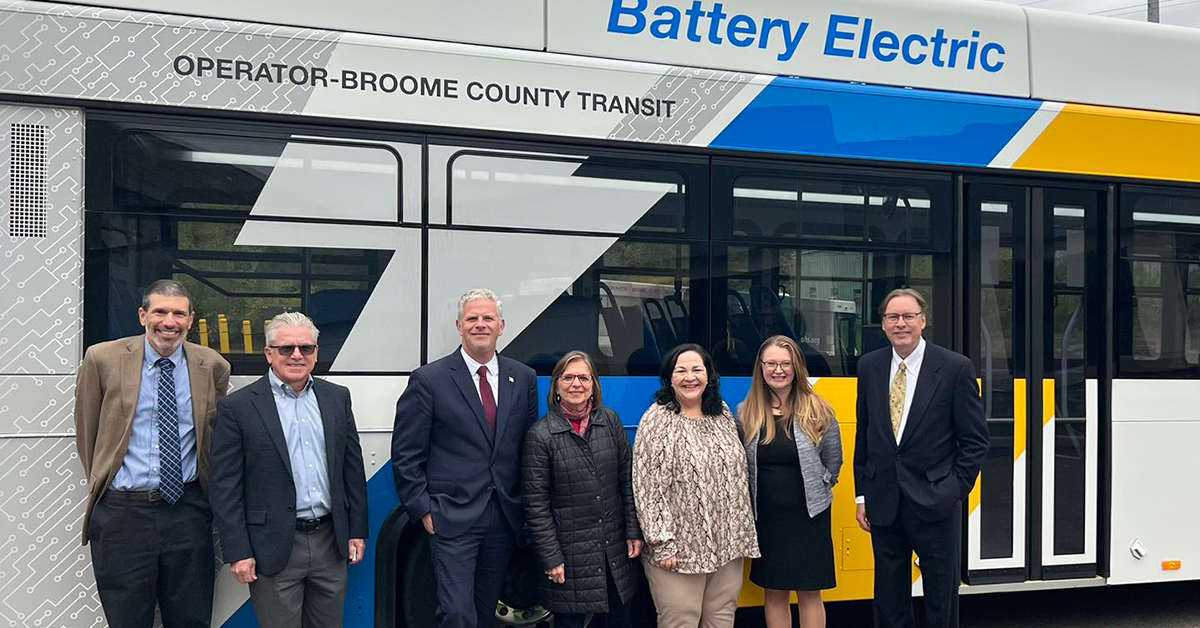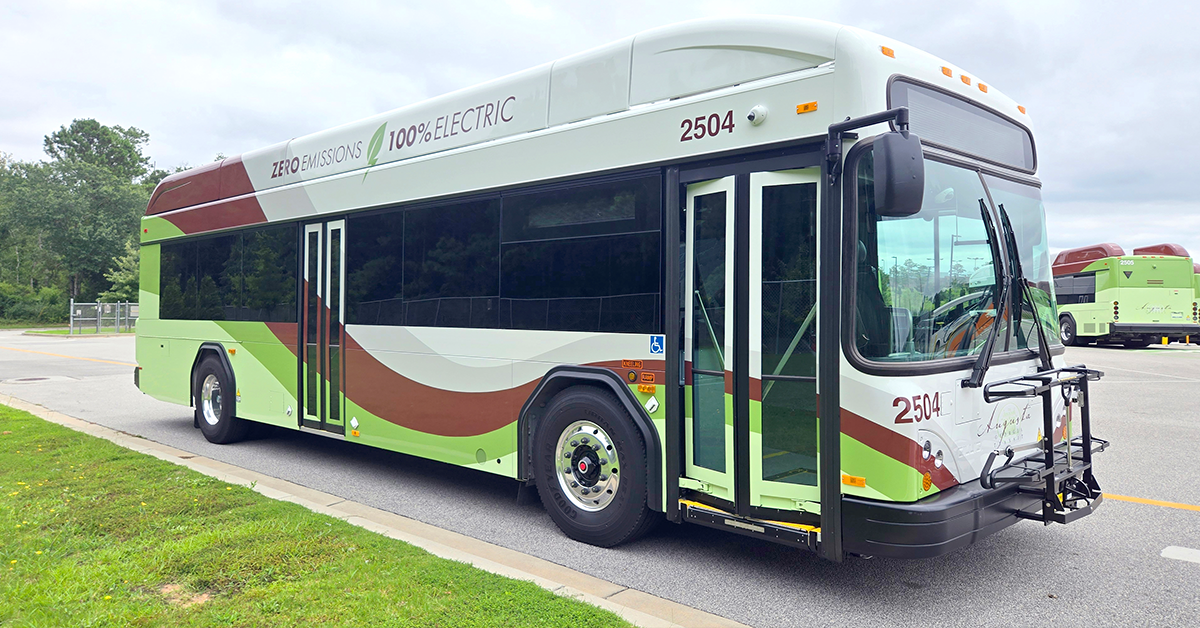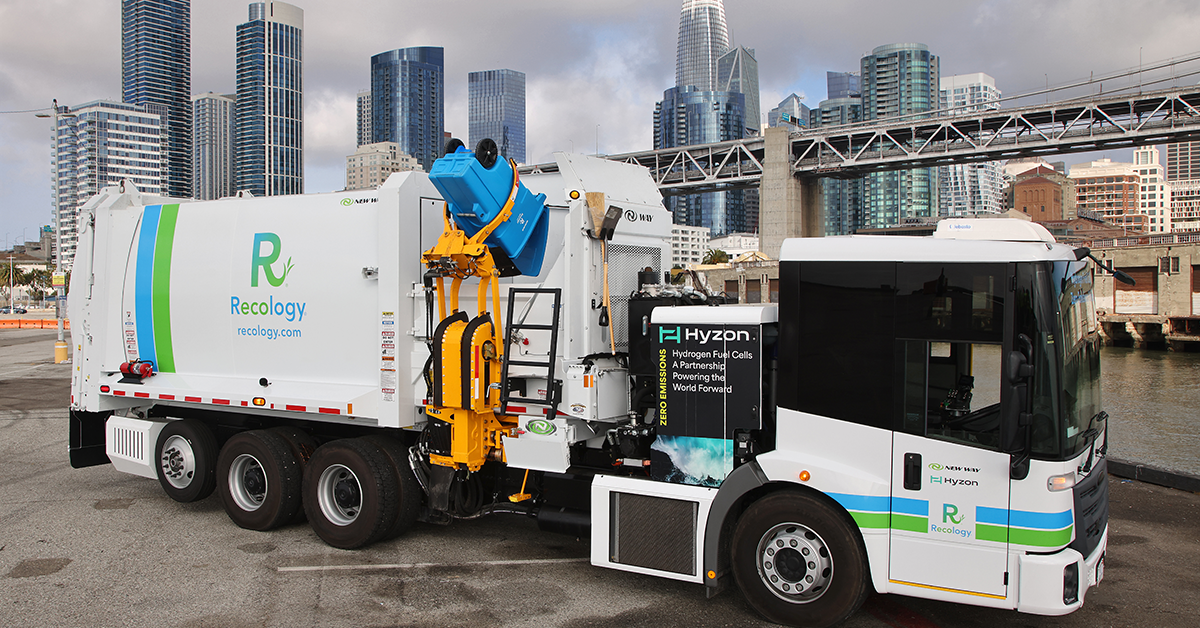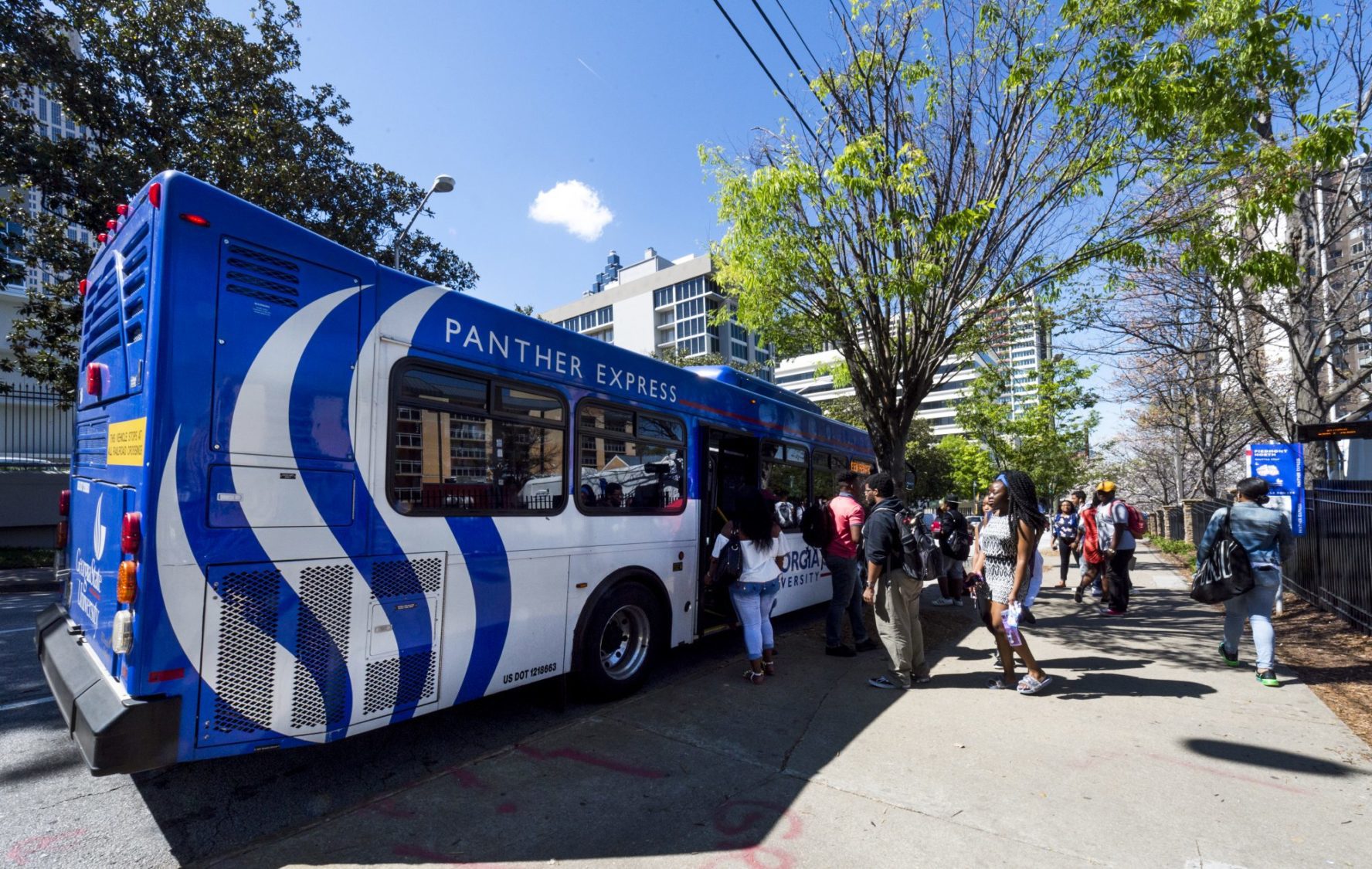CTE Wins Grant to Complete Largest Commercial Deployment of Class 8 Fuel Cell Electric Trucks in North America

NorCAL ZERO project supports Hyundai's entry into the U.S. market for Class 8 hydrogen fuel cell electric trucks
Atlanta, GA - The Center for Transportation and the Environment (CTE) was recently awarded a grant to support the deployment of 30 Hyundai XCIENT Class 8 hydrogen fuel cell electric trucks (FCET) in northern California. The grant is partially funded by California Climate Investments→ and was awarded by the California Air Resources Board and the California Energy Commission's Clean Transportation Program. The project is also funded by over $6 million in cost-share funding provided by the Alameda County Transportation Commission and the Bay Area Air Quality Management District. This project will be the largest commercial deployment of Class 8 hydrogen FCETs in North America. Thanks to the endorsement and support from the City of Oakland and the Port of Oakland, these trucks will service the entire northern California region.
The NorCAL ZERO project is leading the introduction of the Hyundai XCIENT Class 8 FCET into the U.S. market. Hyundai, one of the largest vehicle manufacturers in the world, will bolster the growing domestic supplier base, which is a critical step to achieving cost reductions for zero-emission vehicles. The Hyundai XCIENT Class 8 FCETs have a proven range of more than 400 miles - enough to complete multiple duty cycles. On a single fill of hydrogen, the trucks can run from Oakland to Sacramento, Stockton, Modesto, or as far south as Fresno.
The truck's performance characteristics meet all of the operating requirements for the fleet's operator, Glovis America. The new FCETs will provide Glovis with a total cost of ownership over six years that is nearly equivalent to the ownership cost of Glovis' diesel trucks with cost savings thereafter. The vehicles' operations are supported by innovative financing provided by the Specialized and Asset Finance Division of Macquarie Group, which will help reduce costs associated with the vehicles.
This project will also establish a high-capacity and high-throughput liquid hydrogen fueling station built and operated by FirstElement Fuel. With hydrogen fuel provided by Air Liquide, the hydrogen station will support up to 50 trucks and back-to-back fueling. NorCAL Kenworth, based in San Leandro, will be responsible for maintaining and servicing the trucks to ensure maximum in-service uptime. With engineering and design support from the Fiedler Group, NorCal Kenworth will be upgrading its maintenance facility with hydrogen detection and ventilation equipment to safely service the trucks.
CTE began developing the NorCAL ZERO project more than two years ago with the idea of collaborating with the East Bay Municipal Utility District to site a hydrogen fueling station adjacent to the Port of Oakland to fuel Class 8 FCETs. CTE assembled a core group of 13 established companies and organizations including strong support and numerous endorsements from elected officials and industry representatives, which made this project possible.
The University of California, Berkeley and the West Oakland Environmental Indicators Project will assist the project team with data collection, community outreach efforts, and communications with port officials, local agencies, and Oakland neighborhood groups. The UC Berkeley research and outreach efforts will be led by the Transportation Sustainability Research Center-part of the Institute of Transportation Studies-and the Goldman School of Public Policy.
"We are proud to fund this hallmark deployment of 30 hydrogen fuel cell electric trucks and improve the air quality in northern California," said Hannon Rassool, Deputy Director of Fuels and Transportation Division at the California Energy Commission. "These investments will support zero-emission trucks and infrastructure development and deployment as part of the U.S. market ecosystem. Public and private project partners have come together to take a big step forward in decarbonizing freight and goods movement, as part of CARB and CEC's clean air initiatives."
"Diesel pollution is the most significant toxic air pollutant in the Bay Area and the deployment of these electric trucks will help improve air quality across the region but especially in communities near the Port of Oakland," said Jack Broadbent, Executive Officer of the Bay Area Air Quality Management District. "The Bay Area Air District is excited to support clean transportation solutions that replace diesel engines and have a real impact on public health."
Rebecca Kaplan, Vice Mayor of Oakland and council member at-large, serves on the board of the Alameda County Transportation Commission and has been a strong advocate for these zero-emission trucks. "I am thrilled that we were able to work together to obtain this vital funding to bring zero-emission trucks to our community," said Vice Mayor Kaplan. "This will help reduce pollution and reduce the health impacts that have been suffered here for too long. Hydrogen fuel cells can provide long-haul trucking with zero emissions to protect our community."
"This project represents a significant milestone in achieving California's climate and pollution reduction goals, while also cleaning the air in the communities hardest hit by toxic diesel emissions from trucks," says California Air Resources Board Executive Officer Richard W. Corey. "By introducing Hyundai into the fuel cell electric truck market, the NorCal Drayage project supported by cap-and-trade proceeds holds promise for further electrification of our nation's truck fleets. It also puts us one step closer to accelerating our goals for zero-emission drayage trucks, a crucial step for improving air quality in communities adjacent to our ports and along our major freight corridors."
"The deployment of these trucks in northern California provides a groundbreaking opportunity to demonstrate the exceptional performance of fuel cell electric trucks for an industry that has traditionally relied on conventional diesel and CNG vehicles," said Jaimie Levin, CTE's Director of West Coast Operations. "We look forward to being a part of a new era for trucking across the U.S. - one marked by zero-emission vehicles that don't force fleets to compromise on performance."
Along with helping assemble the team and leading the proposal development effort, CTE will serve as project manager to ensure the successful deployment of these FCETs. With over 28 years of experience in zero-emission technology development and deployment, CTE is uniquely qualified to support this historic project. CTE looks forward to working with its partners to pave the path forward for clean, sustainable transportation and to further commercialize zero-emission trucks within the United States.
###
ABOUT CALIFORNIA CLIMATE INVESTMENTS
Zero-Emission Drayage Truck and Infrastructure Pilot Project is part of California Climate Investments, a statewide initiative that puts billions of Cap-and-Trade dollars to work reducing greenhouse gas emissions, strengthening the economy and improving public health and the environment - particularly in disadvantaged communities. Learn more at caclimateinvestments.ca.gov→.
ABOUT CTE
The Center for Transportation and the Environment is a 501(c)(3) nonprofit organization with a mission to improve the health of our climate and communities by bringing people together to develop and commercialize clean, efficient, and sustainable transportation technologies. CTE collaborates with federal, state, and local governments, fleets, and vehicle technology manufacturers to complete our mission. Learn more at cte.tv→.
ABOUT THE CEC'S CLEAN TRANSPORTATION PROGRAM
This project is funded in part by the California Energy Commission's Clean Transportation Program, which invests up to $100 million annually to support California communities, increase access to zero-emission vehicle infrastructure, support innovation and accelerate the deployment of advanced transportation and fuel technologies.
https://youtu.be/kCtR0XoJYFg





